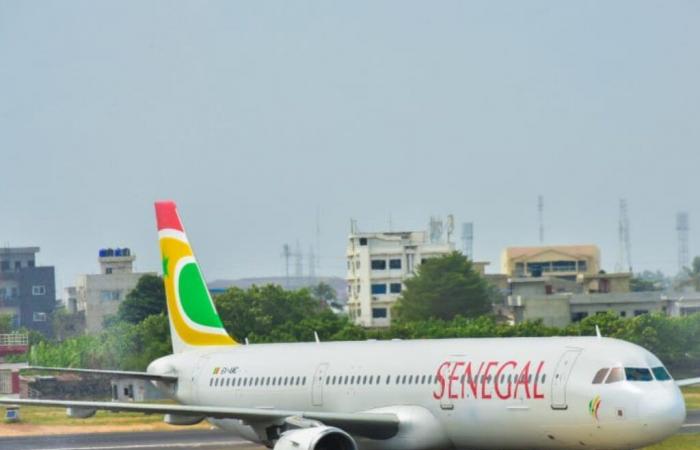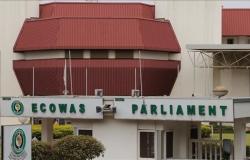Since Air Afrique, several African countries have been able to build solid airlines by drawing lessons from the past, often with the support of Senegalese experts. However, Senegal, once the driving force behind Air Afrique, remained the big loser. While other nations have corrected their economic mistakes, we continue to accumulate failures in the civil aviation sector.
Isn’t it time to initiate a real revolution in this strategic area?
Recently, an article published in a local newspaper, presented as an investigation against the new general director of Air Senegal, illustrates an outdated practice of media destabilization. Upon reading, it was obvious that this was neither a rigorous analysis nor a well-founded investigative investigation, much less an insider’s, but rather an attempt to discredit. These maneuvers, sometimes supported by anonymous people whose interests are threatened or interest groups, must be denounced.
To the unions, it is time to let the new authorities work. Abdoulaye Dièye, director of the AIBD, demonstrated exemplary leadership when managing the “Hajj hiccups”. For his part, the general director of Air Senegal stood out for his technical skills, particularly in the management of Flynas flights. These men must be accompanied and supported in their reforms.
Recent audits carried out by the General State Inspectorate (IGE), the General Inspectorate of Finance (IGF) and other internal bodies have revealed the numerous economic damages suffered by the aviation sector. What the people now expect from President Bassirou Diomaye Faye and his Prime Minister Ousmane Sonko are firm sanctions.
Senegal can no longer tolerate the harmful influence of certain lobbies that have been entrenched in the sector for decades. These groups have contributed to destroying lives and hindering the development of our civil aviation.
From Blaise Diagne International Airport (AIBD) to ground handling services, boarding procedures and infrastructure management, laxity and amateurism must be eliminated for good.
A strategic merger between Air Sénégal and 2AS
One of the necessary changes is the merger between Air Senegal and 2AS, the ground handling company. Currently, the separation of these entities creates inefficiencies and harms the overall competitiveness of the sector. Integrated management of flights and ground services would make it possible to:
• Optimize costs by eliminating administrative and logistical duplication.
• Strengthen operational performance through synergy between services.
• Consolidate the Air Senegal brand, which would become a unique player, better equipped to compete with the region’s major airlines.
This merger is part of a strategic vision, inspired by successful models on an international scale. It would ensure full compliance with ICAO standards, while ensuring better coordination of operations.
Strategic merger: AIBD and LAS, an essential union for the future
One of the essential reforms to be implemented to revitalize Senegalese civil aviation is the merger between AIBD (Blaise Diagne International Airport) and LAS (La Société d’Assistance Aéroportuaire du Sénégal). Currently, the division of these entities leads to inefficient fragmentation of the management of airport services and counterproductive internal competition.
This merger would:
• Optimize human and material resources, by unifying airport management and ground handling services under the same entity, which would avoid duplication and improve the efficiency of operations.
• Strengthen Senegal’s competitiveness as a regional air platform. Centralized management of the airport and ground services would make it possible to better coordinate actions, reduce costs and strengthen the quality of service.
• Guarantee compliance with international standards: The merger of the AIBD and LAS would make it possible to better meet the requirements of the standards and regulations of the International Civil Aviation Organization (ICAO). ICAO establishes Annexes that govern global civil aviation standards, including:
• Annex 14: Standards for design, maintenance and management of airports.
• Annex 9: Facilitation, including customs and immigration formalities.
• Annex 17: Aviation security, aimed at protecting airports and aircraft against acts of terrorism and other threats.
• Annex 19: Aviation safety management, including risk management, safety audits and prevention programs.
These regulations impose strict requirements in terms of safety, quality of services and infrastructure management. By unifying the AIBD and LAS, Senegal would be better prepared to meet these standards, thereby ensuring better safety and more reliable service for passengers while increasing its competitiveness internationally.
By joining forces, AIBD and LAS would become a powerful entity in airport infrastructure management, capable of competing with other major African airport hubs, while ensuring smoother management and a better experience for passengers.
The integration of these two structures is not only an economic necessity, but also a strategic response to the challenges that Senegal must meet to strengthen its aviation sector in the face of increasingly fierce competition and the growing requirements of ICAO.
In a context of increased geopolitical tensions and an increase in international cyberattacks, aeronautical safety and security must be placed at the heart of priorities. Senegalese airports and airlines must prepare to face complex threats, whether physical or digital.
Proposed measures:
1. Strengthen cybersecurity systems
• Deploy advanced technologies to protect air navigation systems, passenger data and critical infrastructure.
• Hire experts specialized in cyber risk management, with regular training of internal teams.
2. Modernize security protocols
• Integrate international best practices, particularly those of the ICAO, to guarantee the safety of passengers and infrastructure.
• Collaborate with international security agencies to anticipate and prevent acts of illicit intervention.
3. Collaborate with military aviation
• Use army aircraft to reinforce domestic flights, particularly in strategic areas.
• Integrate military expertise into aviation security strategies, particularly to combat asymmetric threats.
4. Invest in specialized training
• Train customs, gendarmerie and police officers on new forms of threats.
• Offer aviation security certifications adapted to local and regional realities.
5. Better secure infrastructure
• Install state-of-the-art detection equipment to prevent acts of sabotage or terrorism.
• Strengthen controls at sensitive points, such as cargo areas and runways.
– Impose a personal performance policy in all departments
– Equip the police, gendarmerie and customs in the fight against corruption
– Through firm strategies, redefine a moral policy that restores the victims of the system against the most vulnerable by the abuses of a corrupt, segregationist and sectarian oligarchy. Identify them and put them out of harm’s way for the establishment of social justice which encourages all its employees who experience injustice internally without a voice or spokesperson.
– Put a new face with the promotion of competent and deserving youth at the forefront in all entities.
– Review procurement procedures in all parapublic and public services in the sector and the identity of the beneficial owners of subcontracting companies.
– Demand the organization of a general assembly of the central aeronautics union, (United Union of Air Transport Workers of Senegal) SUTTAS, which has always been led by Alassane Ndoye since the time of Léopold Sédar Senghor until Today.
Finally, Senegal must also recognize the major contributions of aviation pioneers. Figures like Commander Aliou Fall, the late Maïssa Samb, Amadou Balla Diagne, Mamadou Khaya and even Colonel Mame Rokhaya Lo have marked the history of this sector as the first female pilot, to name just a few. Their work deserves to be valued to inspire the new generation.
A necessary revolution
Mr. President and Mr. Prime Minister, the revolution in Senegalese civil aviation is not a luxury, but a necessity.
The people and stakeholders expect concrete and decisive actions for systemic renewal.
Zaynab SANGARÈ
Investigative journalist
Specialized in data journalism






